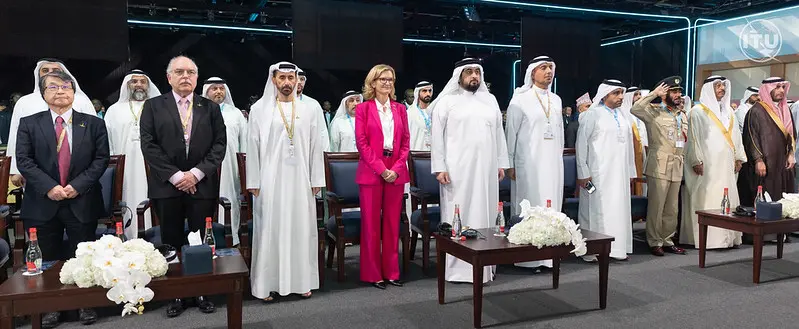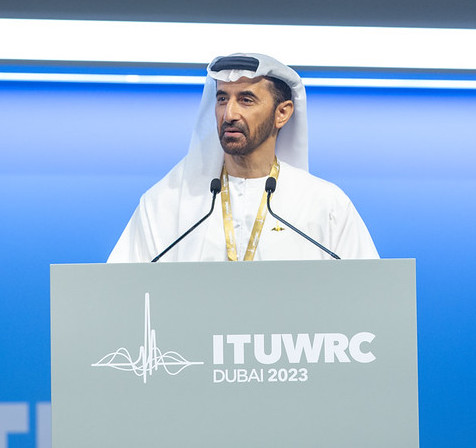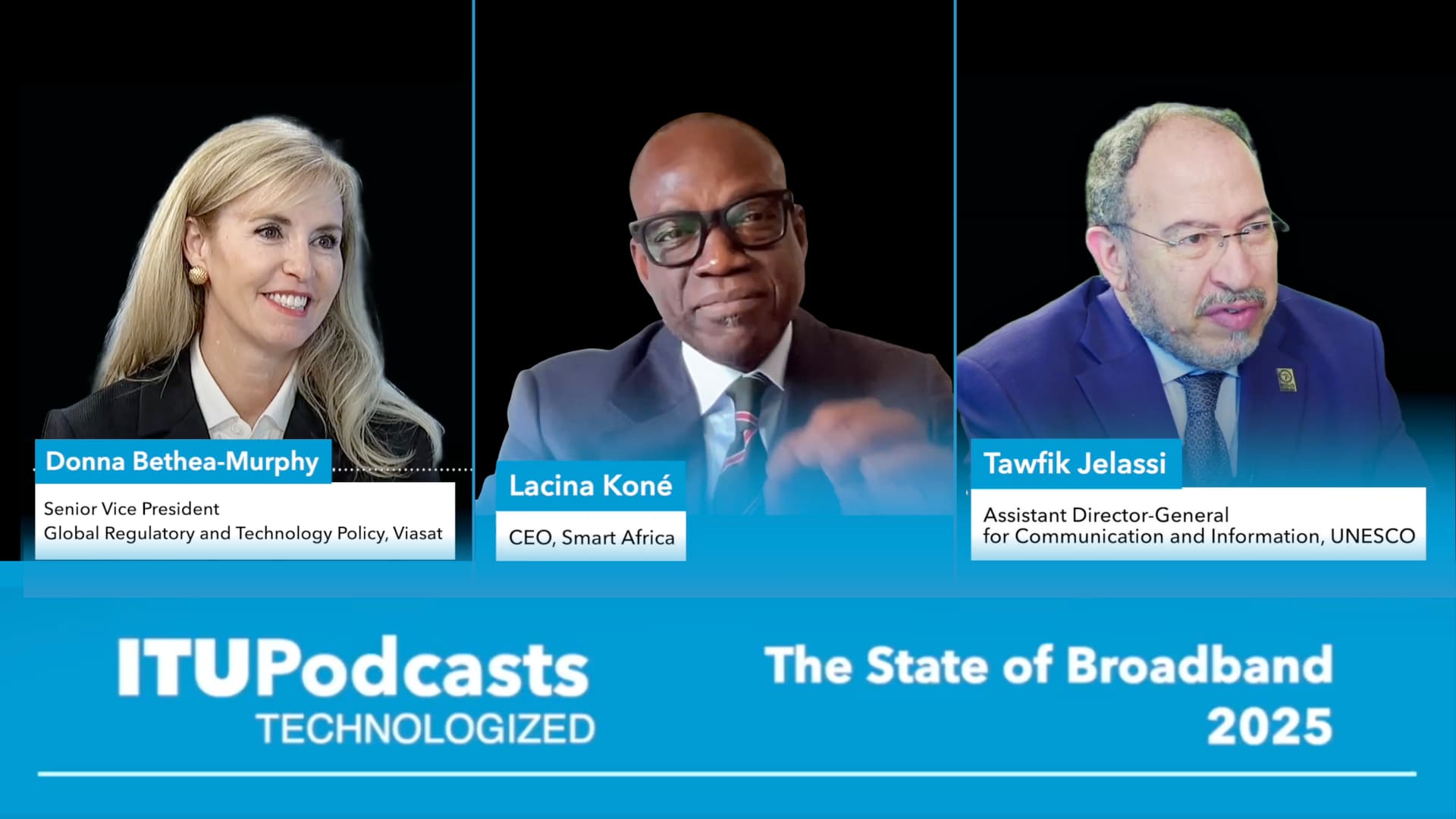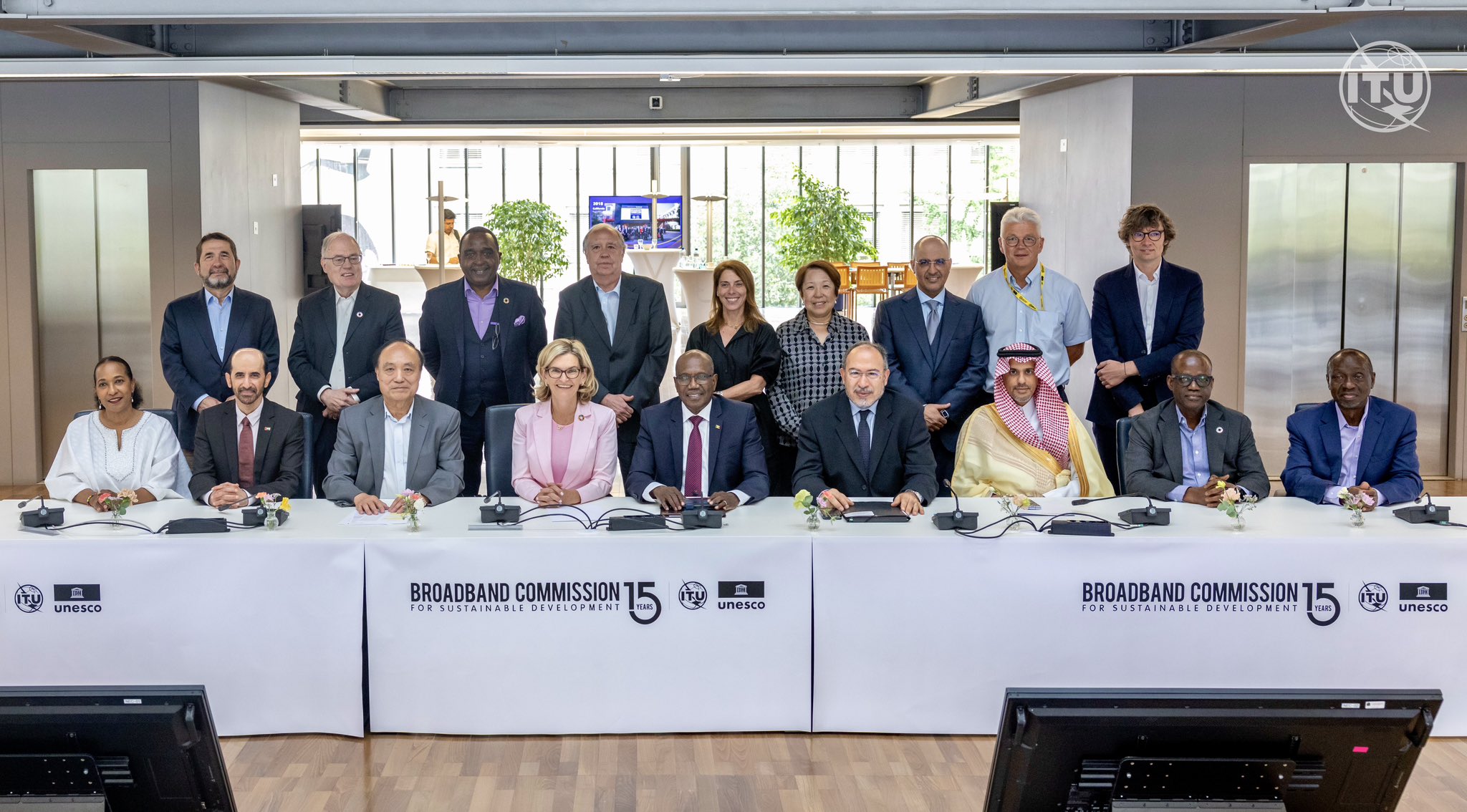The ITU World Radiocommunication Conference 2023 (WRC-23) was held in Dubai, United Arab Emirates, from 20 November to 15 December 2023, preceded by the Radiocommunication Assembly (RA-23).
As an outcome of the Assembly, ITU has “published the framework for the development of standards and radio interface technologies for the sixth generation of mobile systems, popularly referred to as 6G.” This framework, referred to as IMT-2030 Framework Recommendation, identifies 15 capabilities for 6G technology.
In a press release from ITU, the organization explains, “for the next phase of 6G development, companies and industry associations will submit proposals for the IMT-2030 Radio Interface Technology (RIT) for ITU-R consideration in early 2027. These submissions will then be evaluated against the agreed minimum requirements prepared by ITU’s expert group on IMT systems (ITU-R Working Party 5D), with the prospect of getting a final set of 6G technology standards approved by 2030.”

It is anticipated that IMT-2030 will address the need for increased environmental, social and economic sustainability, and also support the goals of the Paris Agreement of the United Nations Framework Convention on Climate Change. As this Assembly closed, Commissioners and leaders convened at WRC23 to assess Radio Regulations, aiming to ensure a rational, equitable, efficient, and economical utilization of the radio-frequency spectrum, while also working to prevent detrimental interference among diverse radiocommunication services.
The WRC conferences are held every three to four years to review, and, if necessary, revise the Radio Regulations, the international treaty governing the use of the radio-frequency spectrum and the geostationary-satellite and non-geostationary-satellite orbits. Revisions are made based on an agenda determined by the ITU Council, which takes into account recommendations made by previous world radiocommunication conferences.

Commission Co-Vice Chair and ITU Secretary-General Doreen Bogdan-Martin opened the WRC-23 stating, “We are at an inflection point in tech history, and radiocommunications are at the top of the global agenda. Equitably managed spectrum and the associated satellite orbits are among the best tools in our toolbox to make good on our commitment to build a digital future that works for everyone and for our planet.”

H.E. Eng. Majed Sultan Al Mesmar, Director General of the UAE Telecommunications and Digital Government Regulatory Authority (TDRA) and Broadband Commissioner, addressed the audience, expressing “While today’s world is full of challenges, this conference comes to set the course and direct the compass toward sustainable human development by updating the Radio Regulations and establishing international consensus on the frequencies necessary for the coming era. With the broad horizons it brings in the fields of smart cities, digital economy, knowledge society, space and others, we are confident that this conference will achieve the results that meet the expectations and aspirations of our peoples.”
The weeks following have been filled with several multistakeholder dialogues, high-level events, resolutions and next steps. For more information on the remaining programme of WRC-23 and event outcomes, visit https://www.itu.int/wrc-23/.
Stay tuned for more updates as the conference continues.
About the 2023 World Radiocommunications Conference
The WRC-23 agenda items included:
- Identifying additional frequency bands for the continued development of International Mobile Telecommunications (IMT), including the use of high-altitude platform stations as IMT base stations for the universal deployment of wireless networks.
- Improvements to the international regulatory framework for geostationary orbit (GSO) and non-geostationary orbit (NGSO) satellites while promoting equitable access for all countries.
- Use of satellite technologies for broadband services to improve connectivity, particularly in remote areas.
- New spectrum to enhance radiocommunications in the aeronautical mobile service, including by satellite, and to facilitate the use of the space research and Earth exploration-satellite services for climate monitoring, weather prediction and other scientific missions.
- The modernization of the Global Maritime Distress and Safety System (GMDSS).
- The regulatory framework for the use of earth stations in motion on board aircraft and ships for communication with GSO and NGSO satellites.
- The future of the ultra-high frequency (UHF) broadcasting band which has implications for television broadcast, programme-making and special events, as well as public protection and disaster relief.
The Radio Regulations ensure that the use of the radio-frequency spectrum is rational, equitable, efficient, and economical – all while aiming to prevent harmful interference between different radiocommunication services.
About the 2023 Radiocommunication Assembly
ITU Radiocommunication Assembly which met in Dubai from 13-17 November to set up the framework, operational procedures, and agenda for the ITU Radiocommunication Sector.
The Assemblies
- assign conference preparatory work and other questions to the Study Groups;
- respond to other requests from ITU conferences;
- suggest suitable topics for the agenda of future WRCs;
- approve and issue ITU-R Recommendations and ITU-R Questions developed by the Study Groups;
- set the programme for Study Groups and disband or establish Study Groups according to need.



